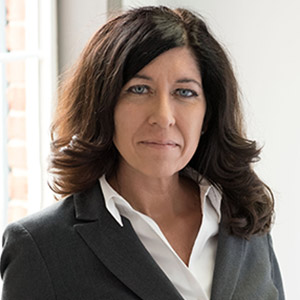Top Michigan Lawyer a Champion for the Cannabis Industry
 Denise Pollicella, a decorated and passionate Michigan attorney, could still be practicing law in any number of areas other than the wildly unpredictable arena she has been a fierce and formidable force in for about 13 years: cannabis law.
Denise Pollicella, a decorated and passionate Michigan attorney, could still be practicing law in any number of areas other than the wildly unpredictable arena she has been a fierce and formidable force in for about 13 years: cannabis law.
Somebody had to take a deep dive into the weeds of a Michigan cannabis industry nearing its third year of legalized adult use. Why did it have it to be you to take the plunge, Denise?
“I’m a masochist,” Pollicella says, no trace of laughter in her voice.
Since, like alcohol, the government now regulates Michigan’s legal cannabis market, if you’re in the business or are thinking about getting into it, having a sharp and accomplished lawyer like Denise Pollicella in your corner may be the best business decision you’ll ever make.
“The industry is constantly evolving and changing,” says Pollicella, founder & managing partner of Cannabis Attorneys of Michigan, a Livingston County based firm.
That means, among other things, that businesses must adapt their strategies—if they even manage to navigate their way through all the regulatory hoops and red tape to be able to get licensed. Pollicella’s firm can help. Cannabis Attorneys of Michigan is a veritable one-stop shop for cannabis companies. Led by pioneer Denise Pollicella, the firm advocates for Michigan’s cannabis industry and provides legal counsel and representation to Michigan’s cannabis companies.
“We do everything,” she said. “From conception to inception. We help our clients start, manage, and protect their businesses.”

Denise A. Pollicella, Esq.
When Pollicella first dipped her toes into the murky unknown waters of the cannabis industry, “nobody else was doing business law,” said the inaugural member of the Michigan State Bar Marihuana Law Section. “I’ve always been a business lawyer and it seemed like a natural fit. It’s just been fascinating legally. I’ve generated more brain cells in 10 years than any other human. Personally, though, it’s been hard.”
It wasn’t long before Pollicella opened a solo practice in Livingston County, her initial business generated by a hydro store owner she knew who kept sending all of his customers with their various legal needs her way.
“I lived in my ex-husband’s guest room for seven years,” she said of her early years championing the cannabis industry. “I did a lot of speaking, lobbying and educating all over the state. One of the things that hit me early on was that I thought marijuana should be regulated like alcohol.”
People listened and Pollicella continues to be on the forefront of developing cannabis policy and regulation at both the state and municipal levels. The passionate crusader has been named one of America’s Top Lawyers by the American Law Society, and though she would prefer to avoid litigation, she is not one you necessarily want to square off against in a courtroom.
The firm she founded in 2003 now has 8 attorneys, all well-schooled and experienced in every aspect of law pertaining to the state’s cannabis industry. Mergers and acquisitions are Pollicella’s specialty.
“I love it,” she said. “I enjoy buying or selling companies.”
As the legalized marijuana industry increasingly becomes market-driven capitalism, there are going to be casualties. In fact, many cannabis shops, especially the smaller ones not backed by corporate wealth, have gone up in smoke in the past year.
“Marijuana prices have cratered in the past year,” Pollicella said. “A lot of businesses went under. Michigan does not limit, on a state level, the number of licenses it grants. The market is going to consolidate and people are going to go out of business. That’s an unfortunate reality.”
Supply outstripping demand leads to an oversaturated legal market already hurt by an illicit marijuana market that is still rampant, according to just about anyone, including Pollicella, that possess a shred of weed-related street sense.
“There are a number of issues that are challenging the cannabis industry right now,” she said. “It goes in cycles. A couple of years ago there was a shortage of product. Then everybody got into growing. We see continued black market distillate, black market hemp and black market CBD out there. This is aided by the fact that it became legal for people to grow it and untenable for law enforcement to crack down on illegal sales. “
It draws Pollicella’s ire when she hears people waffling on the issue of illicit versus legal cannabis sales.
“There is no gray area,” she said. “If you’re not licensed and you’re selling, you’re not a retailer, you’re a drug dealer. Plain and simple. If you’re a caregiver and you are selling to more than five people, you’re a drug dealer. There is a rampant illegal market that the state doesn’t do anything about.”
Pollicella’s firm lives and dies by the industry. She’s plugged in but admits she has no idea how things are going to shake out. Marijuana remains illegal on the federal level, which only adds to the confusion.
“The next 12 months are going to be brutal,” she said. “My firm has to be a Tier 1 supplier to the industry. Not everybody is going to survive. I know personally of 3 or 4 businesses that went down.”
The time has come and gone when you could open a marijuana business and accidentally make money. That kind of eye-popping profit margin is history. If you think running a cannabis business, is a quick and easy way to make money, think again, advises Pollicella.
“It’s already hard to run a business. In the cannabis industry, you don’t have the regular infrastructure around you. You are not afforded bankruptcy protection. There are maybe 10 financial institutions in the state that will take cannabis money. Getting a mortgage, opening a credit card, getting insurance, payroll… all these elements that go into establishing and operating a cannabis business is infinitely more difficult.”
According to Pollicella, the biggest issue holding back the industry is what she called a bottleneck of municipalities that haven’t done a good job of selecting applicants for a marijuana license. The result, she said, has been a rash of protracted litigation that does nobody but the lawyers any good.
“Most municipalities have a merit based application process that invites litigation,” she explains. “I won’t say who but the cities are getting lobbied heavily… They are afraid their communities are going to be overrun by pot shops. You can prevent this by simply adopting tight zoning requirements and having a buffer zone around churches and schools, for instance. This automatically limits the number of potential marijuana businesses. Municipalities want control over everything.”
The City of Detroit, a place Pollicella holds near and dear to her heart, has not issued one recreational adult use permit. In her view, the most populace city in the state should have 75 by now.
“I love Detroit,” she says. “I love Michigan. I went to school in Detroit and love to do things there. They would be generating so much demand and therefore revenue if they had dispensaries. What better way to eliminate the illegal market than establishing a legal, regulated market. It’s so frustrating. My firm is in litigation because so many cities are making it impossible to do business there. Traverse City is another city that is woefully lacking. They should have 12 recreational use facilities, but like Detroit have none.”
Cannabis Attorneys of Michigan firmly believes that the people who put their hearts and capital on the line in the industry need to be able to run their business without the burden of onerous regulations. Some more help from the state would be nice, too, said Pollicella.
“The state is not supportive enough of the legal industry,” she claims. “I know they have a delicate balancing act. I believe in free market enterprise and object to government getting in the way of legal businesses.”